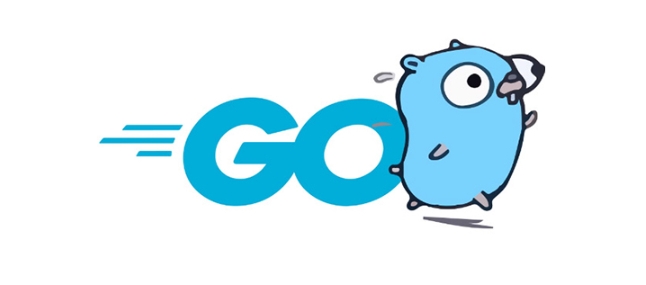defer schedules a function to run before the surrounding function returns, executing in last-in, first-out (LIFO) order; 2. arguments to deferred functions are evaluated immediately, but the function runs later, though closures can capture variables by reference for delayed evaluation; 3. common use cases include closing files, unlocking mutexes, and cleaning up temporary resources, ensuring these actions occur regardless of how the function exits; 4. deferred functions can modify named return values via closures and execute even during panics, making them ideal for use with recover to handle errors gracefully; in summary, defer provides a reliable mechanism for cleanup and resource management in Go, ensuring that critical final actions are performed.

In Go, defer is a keyword that allows you to schedule a function call to run just before the surrounding function returns. It's commonly used for cleanup actions like closing files, unlocking mutexes, or logging exit from a function.

1. Basic Behavior of defer
When you use defer, the function call is pushed onto a stack and executed in last-in, first-out (LIFO) order when the function exits — whether it exits normally or due to a panic.
func main() {
defer fmt.Println("First deferred")
defer fmt.Println("Second deferred")
fmt.Println("Inside main")
}Output:

Inside main Second deferred First deferred
Notice: The second defer runs first because deferred calls are stacked.
2. When Is the Deferred Function Evaluated?
An important detail: the arguments to the deferred function are evaluated immediately when defer is encountered, but the function itself runs later.

func main() {
i := 10
defer fmt.Println("Value of i:", i) // prints 10, not 20
i = 20
}Output:
Value of i: 10
Even though i changes later, the value was captured at the time defer was executed.
You can use a closure to delay evaluation:
func main() {
i := 10
defer func() {
fmt.Println("Value of i:", i) // prints 20
}()
i = 20
}Now it prints 20 because the closure captures the variable by reference.
3. Common Use Cases
defer shines in resource management:
? Closing a file
file, err := os.Open("data.txt")
if err != nil {
log.Fatal(err)
}
defer file.Close() // Guaranteed to run before function exits
// ... use the file? Unlocking a mutex
mu.Lock() defer mu.Unlock() // Critical section // Even if panic occurs, Unlock will be called
? Clean up temporary resources
os.MkdirAll("/tmp/work", 0755)
defer os.RemoveAll("/tmp/work") // Cleanup at the end4. Interaction with Named Return Values and panic/recover
If a function has named return values, a deferred function can modify them using a closure.
func weird() (result int) {
defer func() {
result = 10
}()
return 5 // returns 15
}Also, defer runs even if there's a panic:
func panicky() {
defer fmt.Println("This runs even after panic")
panic("oh no!")
}And this makes defer perfect for recover:
func safeDivide(a, b int) (result int, ok bool) {
defer func() {
if r := recover(); r != nil {
result = 0
ok = false
}
}()
result = a / b
ok = true
return
}Summary
-
deferschedules a function call to run when the function exits. - Arguments are evaluated immediately; function runs later.
- Multiple
defers run in LIFO order. - Useful for cleanup: files, locks, temp data.
- Works with
panicandrecover. - Can modify named return values via closures.
It’s not magic — just a clean, reliable way to ensure cleanup code runs. Use it often when managing resources.
Basically, if you open it, lock it, or create it — defer the close, unlock, or cleanup.
The above is the detailed content of How does defer work in Golang?. For more information, please follow other related articles on the PHP Chinese website!

Hot AI Tools

Undress AI Tool
Undress images for free

Undresser.AI Undress
AI-powered app for creating realistic nude photos

AI Clothes Remover
Online AI tool for removing clothes from photos.

Clothoff.io
AI clothes remover

Video Face Swap
Swap faces in any video effortlessly with our completely free AI face swap tool!

Hot Article

Hot Tools

Notepad++7.3.1
Easy-to-use and free code editor

SublimeText3 Chinese version
Chinese version, very easy to use

Zend Studio 13.0.1
Powerful PHP integrated development environment

Dreamweaver CS6
Visual web development tools

SublimeText3 Mac version
God-level code editing software (SublimeText3)

Hot Topics
 Golang vs. C : Performance and Speed Comparison
Apr 21, 2025 am 12:13 AM
Golang vs. C : Performance and Speed Comparison
Apr 21, 2025 am 12:13 AM
Golang is suitable for rapid development and concurrent scenarios, and C is suitable for scenarios where extreme performance and low-level control are required. 1) Golang improves performance through garbage collection and concurrency mechanisms, and is suitable for high-concurrency Web service development. 2) C achieves the ultimate performance through manual memory management and compiler optimization, and is suitable for embedded system development.
 Golang and C : Concurrency vs. Raw Speed
Apr 21, 2025 am 12:16 AM
Golang and C : Concurrency vs. Raw Speed
Apr 21, 2025 am 12:16 AM
Golang is better than C in concurrency, while C is better than Golang in raw speed. 1) Golang achieves efficient concurrency through goroutine and channel, which is suitable for handling a large number of concurrent tasks. 2)C Through compiler optimization and standard library, it provides high performance close to hardware, suitable for applications that require extreme optimization.
 Which libraries in Go are developed by large companies or provided by well-known open source projects?
Apr 02, 2025 pm 04:12 PM
Which libraries in Go are developed by large companies or provided by well-known open source projects?
Apr 02, 2025 pm 04:12 PM
Which libraries in Go are developed by large companies or well-known open source projects? When programming in Go, developers often encounter some common needs, ...
 Golang vs. Python: Performance and Scalability
Apr 19, 2025 am 12:18 AM
Golang vs. Python: Performance and Scalability
Apr 19, 2025 am 12:18 AM
Golang is better than Python in terms of performance and scalability. 1) Golang's compilation-type characteristics and efficient concurrency model make it perform well in high concurrency scenarios. 2) Python, as an interpreted language, executes slowly, but can optimize performance through tools such as Cython.
 Golang's Purpose: Building Efficient and Scalable Systems
Apr 09, 2025 pm 05:17 PM
Golang's Purpose: Building Efficient and Scalable Systems
Apr 09, 2025 pm 05:17 PM
Go language performs well in building efficient and scalable systems. Its advantages include: 1. High performance: compiled into machine code, fast running speed; 2. Concurrent programming: simplify multitasking through goroutines and channels; 3. Simplicity: concise syntax, reducing learning and maintenance costs; 4. Cross-platform: supports cross-platform compilation, easy deployment.
 Golang vs. Python: Key Differences and Similarities
Apr 17, 2025 am 12:15 AM
Golang vs. Python: Key Differences and Similarities
Apr 17, 2025 am 12:15 AM
Golang and Python each have their own advantages: Golang is suitable for high performance and concurrent programming, while Python is suitable for data science and web development. Golang is known for its concurrency model and efficient performance, while Python is known for its concise syntax and rich library ecosystem.
 C and Golang: When Performance is Crucial
Apr 13, 2025 am 12:11 AM
C and Golang: When Performance is Crucial
Apr 13, 2025 am 12:11 AM
C is more suitable for scenarios where direct control of hardware resources and high performance optimization is required, while Golang is more suitable for scenarios where rapid development and high concurrency processing are required. 1.C's advantage lies in its close to hardware characteristics and high optimization capabilities, which are suitable for high-performance needs such as game development. 2.Golang's advantage lies in its concise syntax and natural concurrency support, which is suitable for high concurrency service development.
 Golang's Impact: Speed, Efficiency, and Simplicity
Apr 14, 2025 am 12:11 AM
Golang's Impact: Speed, Efficiency, and Simplicity
Apr 14, 2025 am 12:11 AM
Goimpactsdevelopmentpositivelythroughspeed,efficiency,andsimplicity.1)Speed:Gocompilesquicklyandrunsefficiently,idealforlargeprojects.2)Efficiency:Itscomprehensivestandardlibraryreducesexternaldependencies,enhancingdevelopmentefficiency.3)Simplicity:






